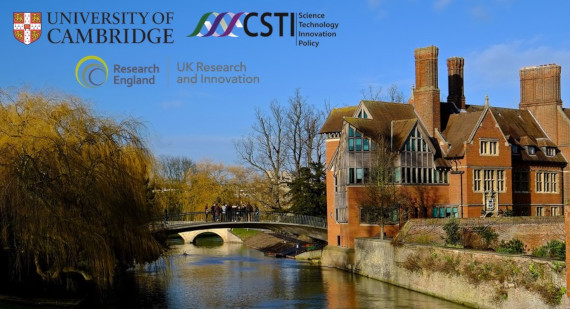Advancing policymakers understanding of regional innovation funding

The Centre for Science, Technology and Innovation Policy (CSTI) at the University of Cambridge hosted a roundtable on 9th July 2018 bringing together academic experts with senior policy officials to explore academic evidence and translate it into practical implications for ‘place-based’ funding programmes.
Place-based approaches to policy are based on the argument that, to be effective, public interventions need to be place-specific and address the particular needs, opportunities and challenges of the local area, whether they be towns, cities, or regions. In the context of research and innovation funding programmes delivered by UK Research and Innovation, such an approach would mark a significant deviation from a traditional focus on funding excellence wherever it is located nationally.
Addressing local needs to deliver local benefits
The Cambridge roundtable discussion provided an opportunity for leaders from UKRI and the Department of Business, Energy and Industry Strategy to explore together the rationale for investing in local research and innovation systems to deliver local economic benefits.
The aim was to inform UKRI’s long-term thinking around how it can play an active role in delivering the UK government’s industrial strategy and, in particular, the place-based agenda to reduce regional disparities in productivity.
Four academic experts from different academic perspectives – including economic geography, industrial economics, innovation systems and industrial value capture – provided concepts, insights and evidence and to stimulate rigorous and lively discussions. The experts included:
- Professor Alan Hughes (Imperial College Business School, Lancaster University Management School, and University of Cambridge)
- Professor Philip McCann (University of Sheffield)
- Michael Kitson (University of Cambridge)
- Professor (Emeritus) Michael Best (University of Massachusetts Lowell)
In addition, CSTI with its Policy Links Unit contributed examples and insights from a review of international regional research and innovation funding programmes.
Following the roundtable, Tomas Coates Ulrichsen (CSTI) said “key to the success of the roundtable was ensuring that our discussions were actively led by the policymakers’ practical evidence needs and questions, while keeping them strongly grounded in the state-of-the-art thinking from the different academic perspectives. This required close working with both the policymakers involved and the academic experts to shape and facilitate discussions on the day. Through this we were able to focus our attention on translating academic concepts, theories and evidence into practical implications for policy design and development.”
Reflecting on the event, CSTI Director, Dr Eoin O’Sullivan, said “in organising this roundtable we built on our approach of convening academic experts to address research questions directly related to real policy evidence needs. In particular, we wanted to provide a forum for policymakers to engage with academic insights and research evidence at a level of detail that is relevant and useful for policy development and programme design.
“The expertise of our invited speakers, in industrial economics, innovation management and economic geography, together with IfM insights into the details of manufacturing systems and international technology innovation programmes, proved a great platform for advancing our understanding of some of the opportunities (and challenges) of ‘place-based’ research and innovation policy.”
The experts’ papers will be finalised over the summer and will be published in Autumn 2018.
Date published
27 July 2018









